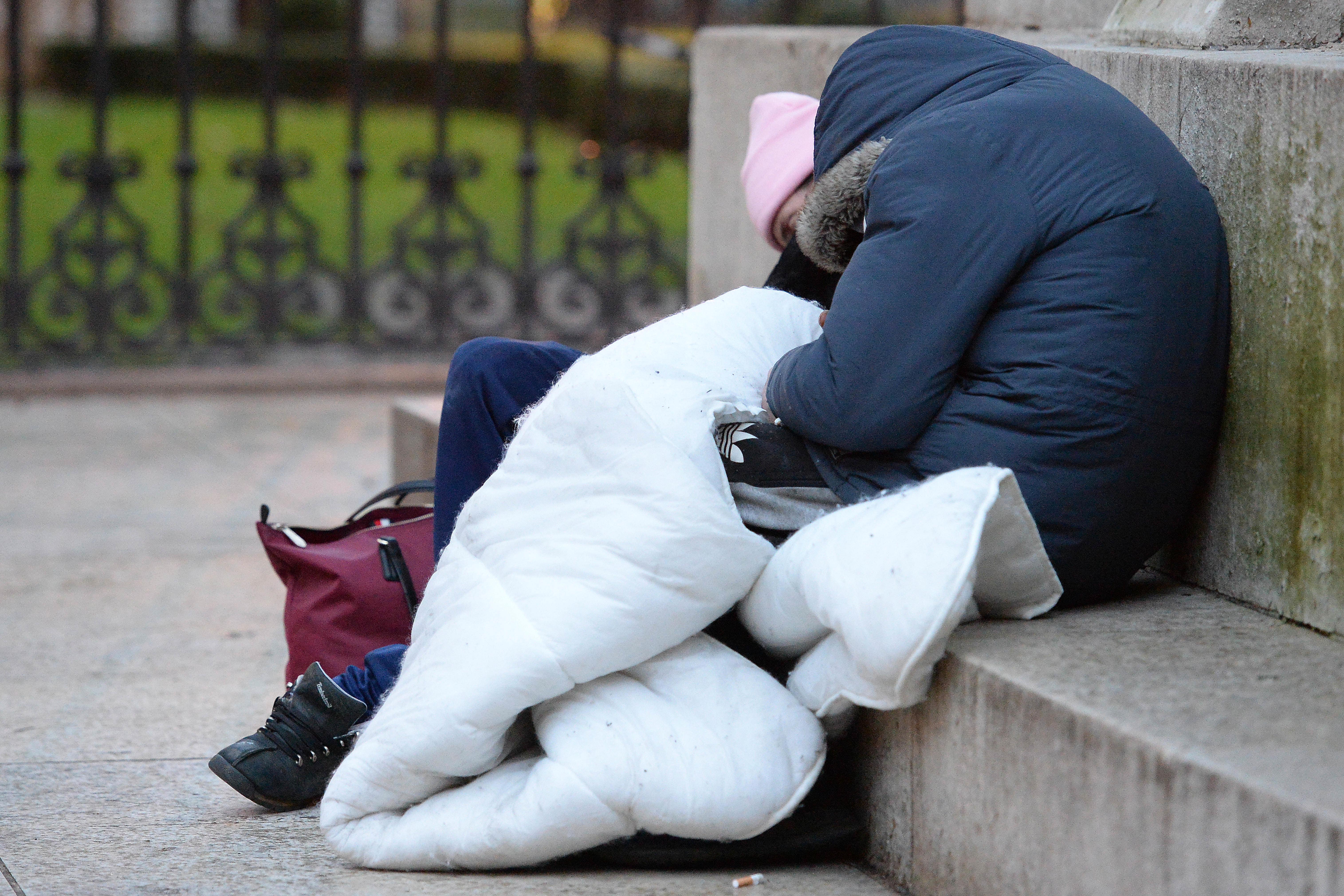Record high rough sleepers in London branded ‘devastating’
The data also showed a record high for the number of people classed as ‘living on the streets’.

The number of people recorded sleeping rough in London has hit a record high, with homeless charities branding the statistics a “disaster” but not a surprise.
A total of 4,389 people were recorded as sleeping rough in the capital between October and December, which is the highest quarterly figure since records began 10 years ago.
The data, from the Combined Homelessness and Information Network (Chain), also showed a record high for the number of people classed as “living on the streets”, which reached its highest ever quarterly level of 560.
People are classed as living on the streets if they have had five or more contacts with outreach services while rough sleeping in a 21-day period.
The data, commissioned and funded by the Greater London Authority (GLA) and managed by Homeless Link, showed that 2,283 people were recorded as sleeping rough for the first time.
This is the second-highest quarterly figure reported since recording began in 2014, Homeless Link – the national membership charity for organisations working directly with people who become homeless in England – said.
Fiona Colley, director of social change at the charity, said: “That a record number of people have been exposed to the trauma of sleeping rough in London this winter, many of them for the first time, is devastating.”
She said without investment and policy changes to ensure homelessness prevention and support there is a risk of “allowing soaring rough sleeping to become the norm in the capital”.
She noted the backdrop of a “woeful shortage of affordable homes and rocketing rents in the city”, combined with inflation and a “crisis in local government funding”.
She added: “This is a disaster that must be addressed immediately. We are calling on Jeremy Hunt to use the Spring Budget to safeguard homelessness support by ensuring services are fully funded.
“The Government must now prove that it is still committed to meeting its own target of ending rough sleeping for good.”
An expert group last year predicted the Government will not meet its target to end rough sleeping by the end of this Parliament, which was a 2019 manifesto commitment.
The Kerslake Commission on Homelessness and Rough Sleeping, which published a report last September, said the target will be missed amid “chronic and unresolved” issues in the housing system, with the country facing an affordability crisis that is pushing more people onto the streets, and as pressure on public services results in a lack of early support to help prevention.
Of the latest figures for London, St Mungo’s Chief Executive, Emma Haddad, said: “Figures evidencing the picture of homelessness in our capital have once again seen a really worrying rise.
“This is not a surprise – our outreach teams across London have been inundated with new people arriving onto the streets.
That a record number of people have been exposed to the trauma of sleeping rough in London this winter, many of them for the first time, is devastating
“The shortage of affordable and appropriate housing is leaving far too many people vulnerable.”
Riverside, an organisation which describes itself as one of the country’s leading developers of affordable housing and providers of homelessness services and supported housing, said it fears things could continue to get worse.
John Glenton, executive director of care and support, said the “deep concern here is that we have not reached the peak of this crisis and providers are also reporting unprecedented demand on their services in January”.
While welcoming Government investment, he said: “This level of funding does not appear to be enough to tackle the record numbers of people now living in temporary accommodation and sleeping rough.
“It does not look likely that the Government can end rough sleeping during this Parliament.”
Bookmark popover
Removed from bookmarks